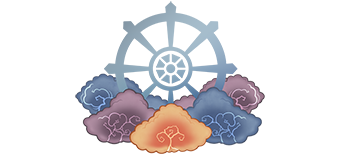Blog: Personal Responsibility: An Interview with Isa Gucciardi, Ph.D.
Blog: Personal Responsibility: An Interview with Isa Gucciardi, Ph.D.
Question: How would you define personal responsibility?
Isa: Personal responsibility is a process of becoming more self-aware, understanding your motivations, your intentions, and the effect your actions and thoughts have on you and those around you. It involves a willingness to contemplate the consequences of your emotional responses, and the ability to recognize when those expressions are harmful and when they are beneficial.
Question: Why is personal responsibility important in the context of relationship?
Isa: If you take personal responsibility for your reactivity within a relationship, the relationship can become a vehicle for self-transformation, where both people are given an opportunity to learn about themselves. If you don’t take responsibility for your actions and reactions, you cannot receive the teachings your relationships offer you.
When you are unable to reflect on your role in a conflict, it’s easy to make the other person the perpetrator and feel like a victim of their actions and reactions. This creates a relational dynamic that is challenging at best. If someone stays in relationship to force another person to take responsibility for mistreating them, part of taking responsibility would be examining why they’re allowing themselves to be harmed.
You can waste a lot of time, effort, and energy trying to get someone else to treat you the way you should be treating yourself. If you don’t take responsibility for loving yourself, and instead offload that responsibility onto someone who loves you imperfectly, your interactions become centered around trying to control the way you are loved. All this effort is lost, because you can’t force anyone to do anything. If you haven’t learned to love yourself, you won’t be able to receive love from another person, even if it is offered to you.
Question: How should you respond when someone is unwilling to take personal responsibility in a relationship?
Isa: When a person is unwilling to take personal responsibility in a relationship, you have to look at your reactivity to their refusal to take responsibility. Generally speaking, when someone has harmed us and refuses to be held accountable for their behavior, we have a multitude of reactions, and our reactions are our responsibility.
When a person is harmed by someone who refuses to take responsibility, they commonly react by trying to “balance the scales.” They may feel justified in their anger, continuing to engage with them in an effort to get them to admit their guilt. This kind of behavior is controlling in nature and can become abusive in its own way. When you’re dealing with someone who is not interested in taking responsibility, it illuminates the nature of the inner work you need to engage in. If one person is staying in relationship to control another, they are not relating in a way that is mutually beneficial, and that’s problematic.
While it’s preferable to try and work things out, we are never required to submit ourselves to harm. Instead, we can leave a relationship and do the necessary inner work so we can leave without anger and hatred in our wake. Rather, we can consciously choose to disengage from any relationship that causes us to suffer.
This is true of any kind of relationship: a parent-child relationship, a sibling relationship, a friendship, or a spouse relationship. This idea is antithetic to people who believe you can’t walk away from your family. But in my opinion, family systems can be highly toxic, and it’s important that all members of the family be held accountable for their effect on others, regardless of their place in the familial hierarchy.
If we choose to walk away, it is important to have compassion for the other person’s experience without letting ourselves be drawn into it. The process of getting to that place is complex and requires attention and skill to navigate. But it’s a process that provides invaluable insight. Ultimately, we have to admit we don’t have control over anyone’s actions but our own.
In relationships, it’s important to get to the place where everyone’s concerns are equally valid. No one is required to be in relationship with someone who’s not willing to participate at that level. We can be kind, we can have empathy, but we don’t have to be deeply involved and allow ourselves to be negatively affected.
Taking personal responsibility can be liberating. If you don’t take responsibility, your potential for growth within your relationships will be limited. But if you can become aware of the lessons your reactions reveal to you, your relationships with others can become more authentic and harmonious, and many doors of self-awareness will open to you.

